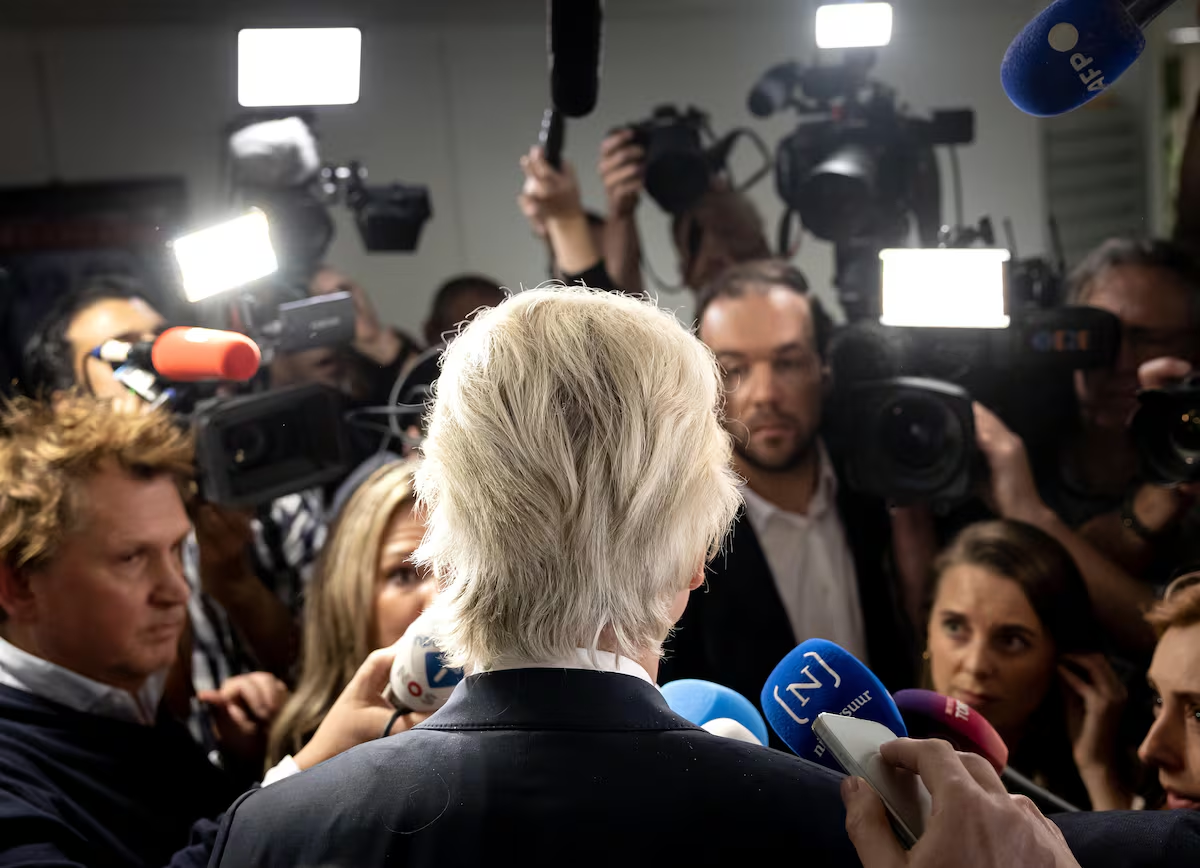
Although in the Dutch elections there was a draw between the social-liberal party D66 and Geert Wilders’ far-right PVV, this picture cannot neutralize what constitutes a significant defeat for the far right: Wilders loses a third of his parliamentary representation and the first position. Presenting this as a draw might be as inaccurate as describing a military withdrawal as a “strategic repositioning.” Wilders’ quote in This reveals something crucial: Even from their perspective, there is defeat to acknowledge. What we have seen in the Netherlands is the exhaustion of far-right populism as it moves from opposition to government.
The irony is revealing: Wilders provoked these early elections by leaving the governing coalition in June precisely because he could not impose his agenda on immigration, his main issue, his political raison d’être. Ultra populism thrives as an anti-establishment opposition force, but quickly runs out of steam when it has to wield power and deal with the complexities of governing. This is not an exclusively Dutch phenomenon: in Finland, Riikka Purra’s party experienced similar attrition after its time in government. The coalition with the PVV was known for its constant infighting, demonstrating that the far right may promise order, but tends to generate chaos when it governs. When the stranger becomes internalwhen the critic of establishment becomes an institution, its narrative falls apart.
The real protagonist of these elections is Rob Jetten, leader of D66, who catapulted his party from 9 to 27 seats with what analysts describe as “the most energetic and effective anti-Wilders campaign”. Jetten, 38 and on track to become the Netherlands’ youngest openly gay prime minister, offered a deliberately positive message – a “Yes, we can” – with concrete proposals on housing and education. This is not a return to discredited technocratic centrism, but the articulation of a credible progressivism that offers transformation with competence. He especially connected with young voters fed up with both establishment as well as populist catastrophism.
However, it would be naive to interpret this as a definitive victory. As Cas Mudde points out, even if Wilders loses, he has already irreversibly transformed the Dutch political field. The cordon sanitaire has disappeared: the traditional parties have partially absorbed his agenda on immigration. Frans Timmermans’ left-wing coalition has also proposed quotas of 60,000 annual entries and a strengthening of border controls. The far right may lose the elections, but its positions have normalized. This is the real structural danger.
But it is no coincidence that this progressive victory for the D66 comes just days after Catherine Connolly, an independent left-wing candidate, won the presidency of Ireland with 63% of the vote, also defeating the establishment traditional, and just weeks after Zohran Mamdani, a 33-year-old representative of the Democratic left, defeated the powerful Andrew Cuomo in the New York mayoral primary. In all three cases we see figures that do not belong to the establishment conventional, but they are not strangers populist anti-system. The crucial thing is that they express credible change without falling into exclusivist nationalism or the discourse of fear. All three connect above all to young voters through concrete proposals and a language of hope. The question we must dare to ask is: what if tiredness towards right-wing populism does not produce a return to the traditional center, but rather the opening of a new political space with a positive message?







